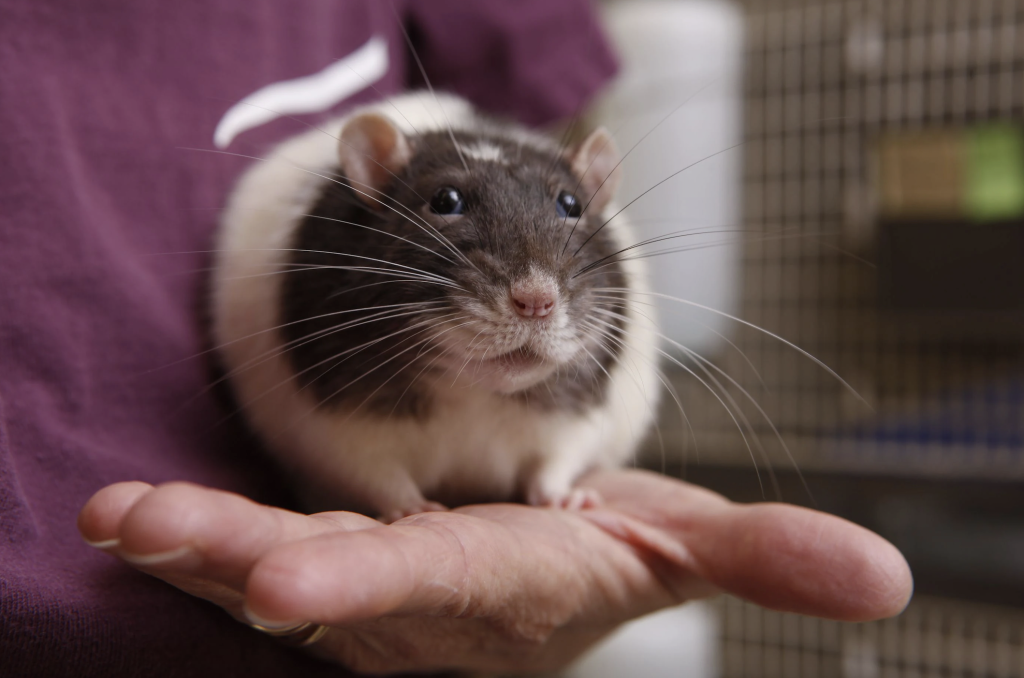Feeding your pet rats a healthy and balanced diet is essential for their overall health and well-being. Rats are omnivores, which means they require a diet that contains both plant and animal-based foods. In this article, we will discuss the do’s and don’ts of feeding your pet rats.

The Do’s of Feeding Your Pet Rats
1. Do Provide a Variety of Foods
A variety of foods is essential to provide your pet rats with a balanced diet. Offer a mix of fresh fruits and vegetables, high-quality commercial rat food, and occasional treats.
2. Do Offer Fresh Water
Fresh water should be available to your pet rats at all times. Use a water bottle or bowl and change the water daily.
3. Do Feed High-Quality Commercial Rat Food
High-quality commercial rat food should be the mainstay of your pet rats’ diet. Look for rat food that contains a balanced ratio of protein, fat, and carbohydrates.
4. Do Feed Fresh Fruits and Vegetables
Fresh fruits and vegetables are an important source of vitamins and minerals for your pet rats. Offer a variety of fruits and vegetables, such as carrots, apples, kale, and broccoli, but be careful not to overfeed sugary fruits.
5. Do Feed Occasional Treats
Treats can be a great way to bond with your pet rats and provide them with additional nutrients. Offer treats in moderation, such as cooked eggs, lean meats, and small amounts of cheese.
6. Do Check the Expiration Dates
Always check the expiration dates of commercial rat food and treats before feeding them to your pets. Expired or spoiled food can cause health problems for your rats.
7. Do Supplement with Protein
Rats require a higher protein diet than many other small animals. In addition to commercial rat food, supplement your rats’ diet with sources of protein such as cooked eggs, lean meats, and tofu.

The Don’ts of Feeding Your Pet Rats
1. Don’t Feed Foods High in Sugar or Fat
Foods high in sugar or fat can cause health problems for your pet rats, such as obesity and dental problems. Avoid feeding your rats sugary treats or fatty foods, such as chocolate or fried foods.
2. Don’t Feed Too Many Treats
While treats can be a great way to bond with your pet rats, overfeeding treats can cause health problems. Offer treats in moderation, and avoid feeding your rats too many sugary or fatty treats.
3. Don’t Feed Processed Foods
Processed foods, such as chips or crackers, are not suitable for your pet rats. These foods are often high in salt, sugar, and fat and can cause health problems for your rats.
4. Don’t Feed Raw Beans or Peanuts
Raw beans and peanuts contain a toxin that can be harmful to your pet rats. Always cook beans and peanuts before feeding them to your rats.
5. Don’t Feed Citrus Fruits
Citrus fruits, such as oranges and lemons, are not suitable for your pet rats. These fruits contain high levels of acid, which can cause digestive problems for your rats.
6. Don’t Feed Avocado
Avocado contains a toxin that can be harmful to your pet rats. Avoid feeding your rats avocado or any foods that contain avocado.
7. Don’t Forget to Monitor Their Diet and Health
It is essential to monitor your pet rats’ diet and health regularly. Observe their eating habits, weight, and behavior to ensure they are healthy and thriving. If you notice any changes in their behavior or appearance, seek veterinary attention immediately.

Conclusion
Feeding your pet rats a healthy and balanced diet is essential for their overall health and well-being. Provide a variety of foods, including high-quality commercial rat food, fresh fruits and vegetables, occasional treats, and sources of protein. Avoid feeding them foods high in sugar or fat, processed foods, raw beans or peanuts, citrus fruits, and avocado. Monitor their diet and health regularly, and seek veterinary attention if necessary. By following these guidelines, you can ensure that your pet rats are healthy and happy.


